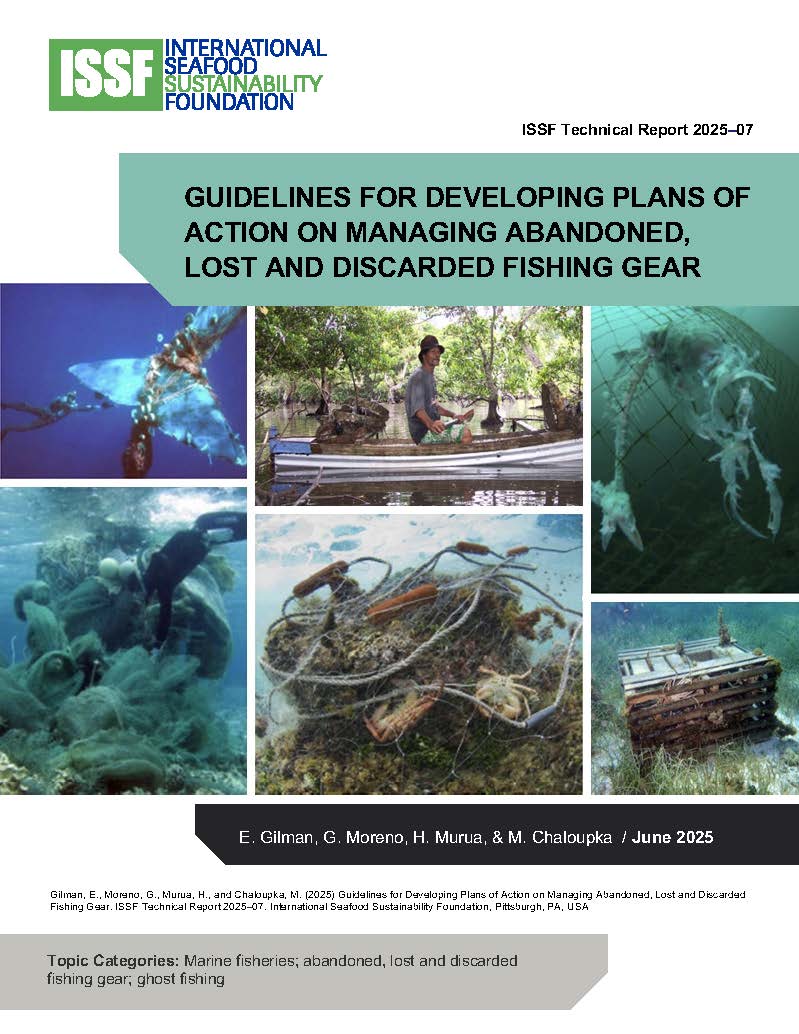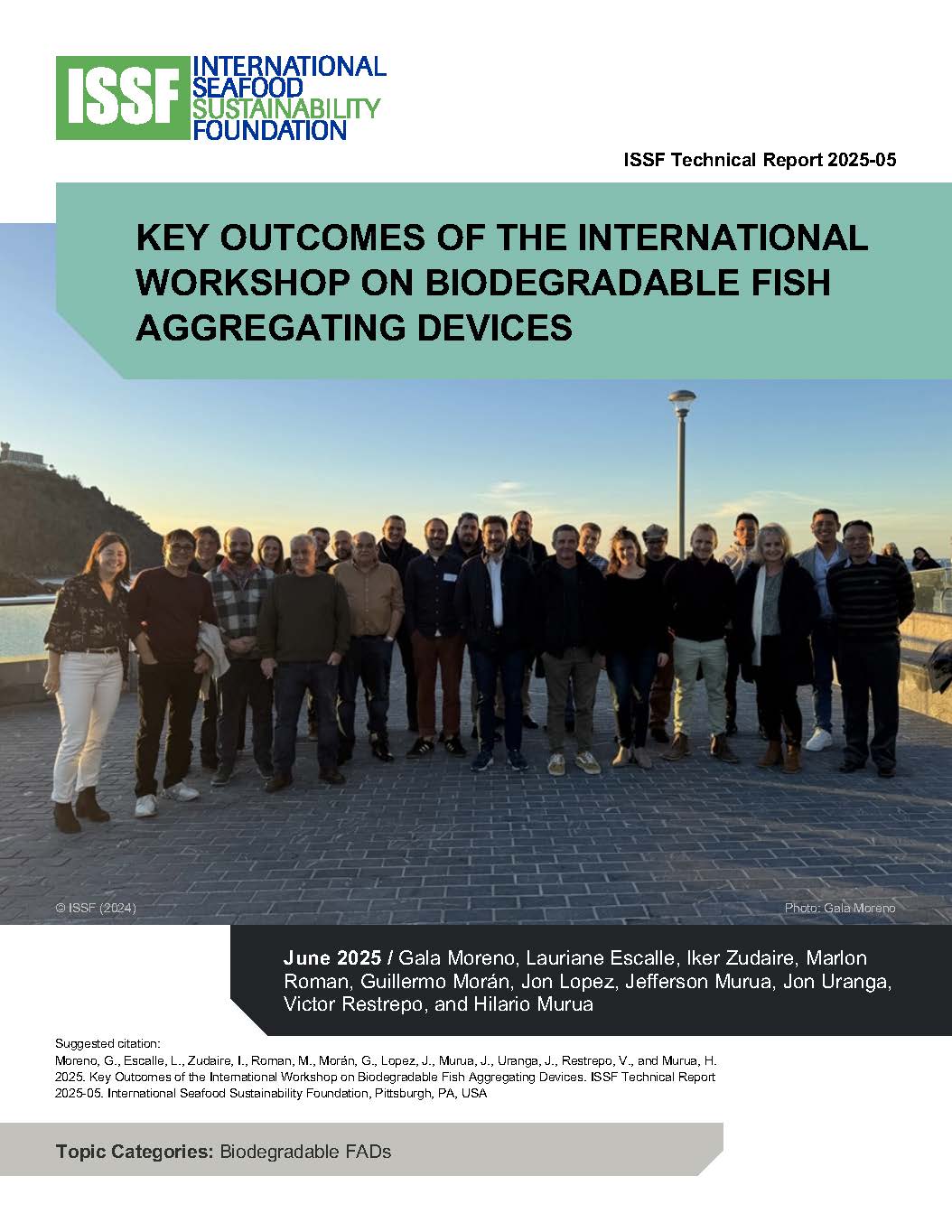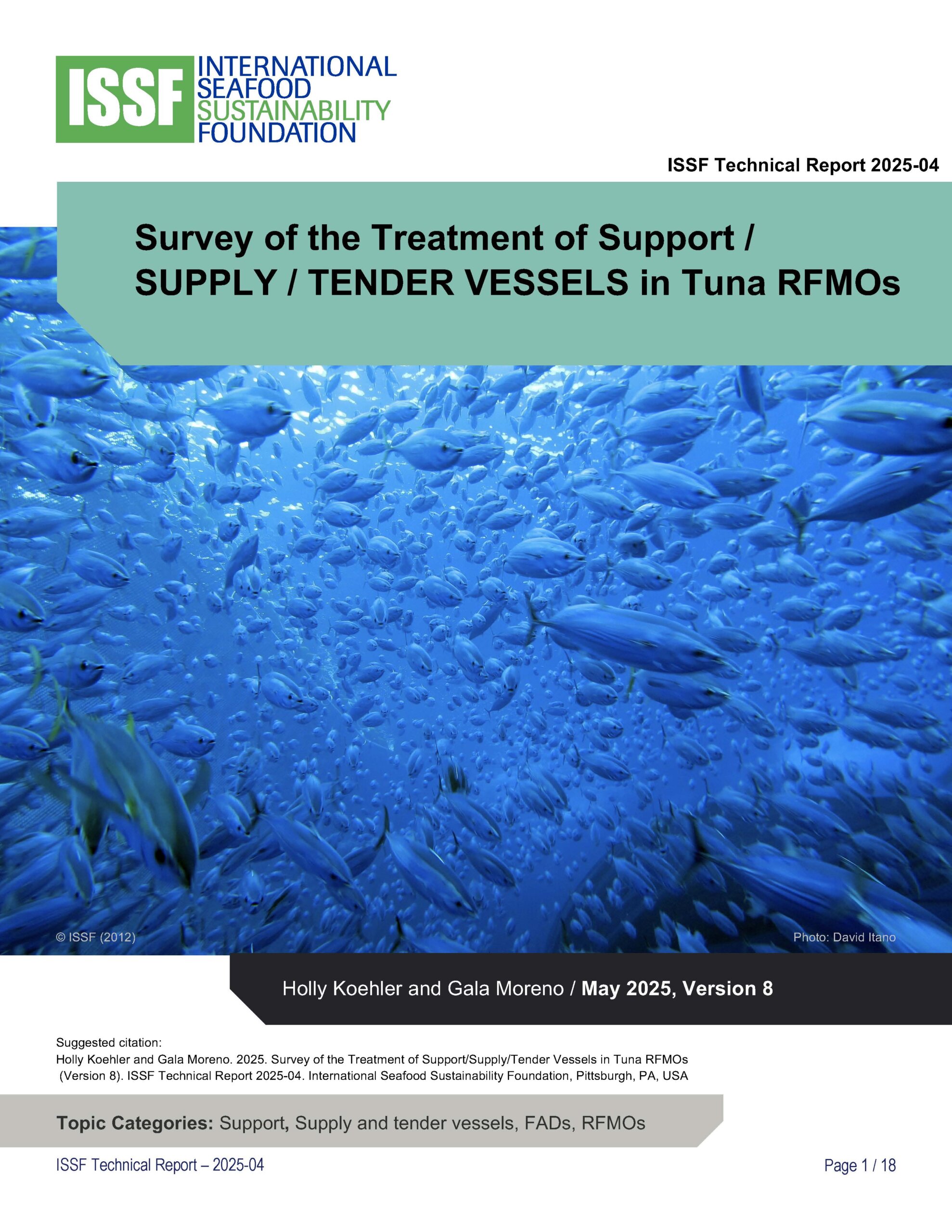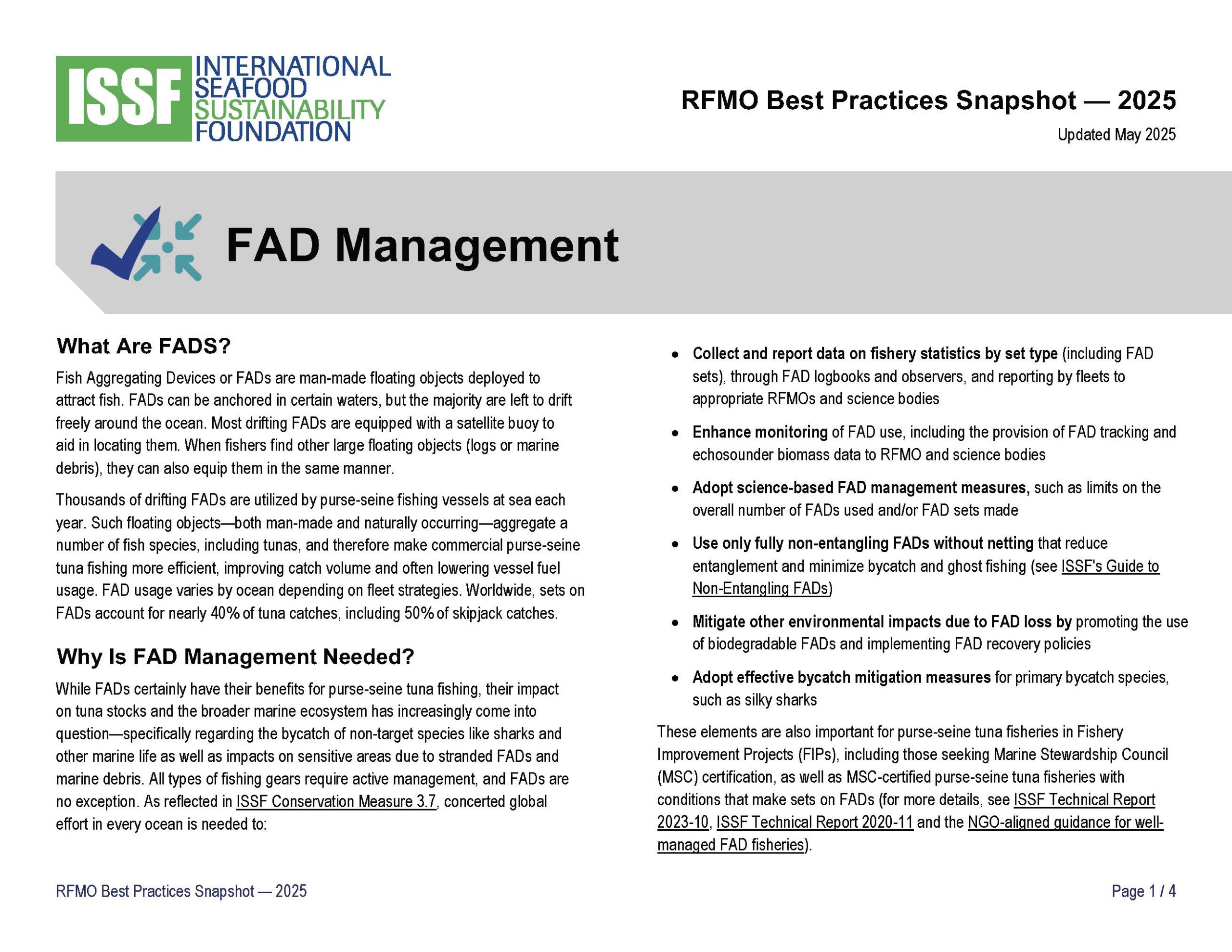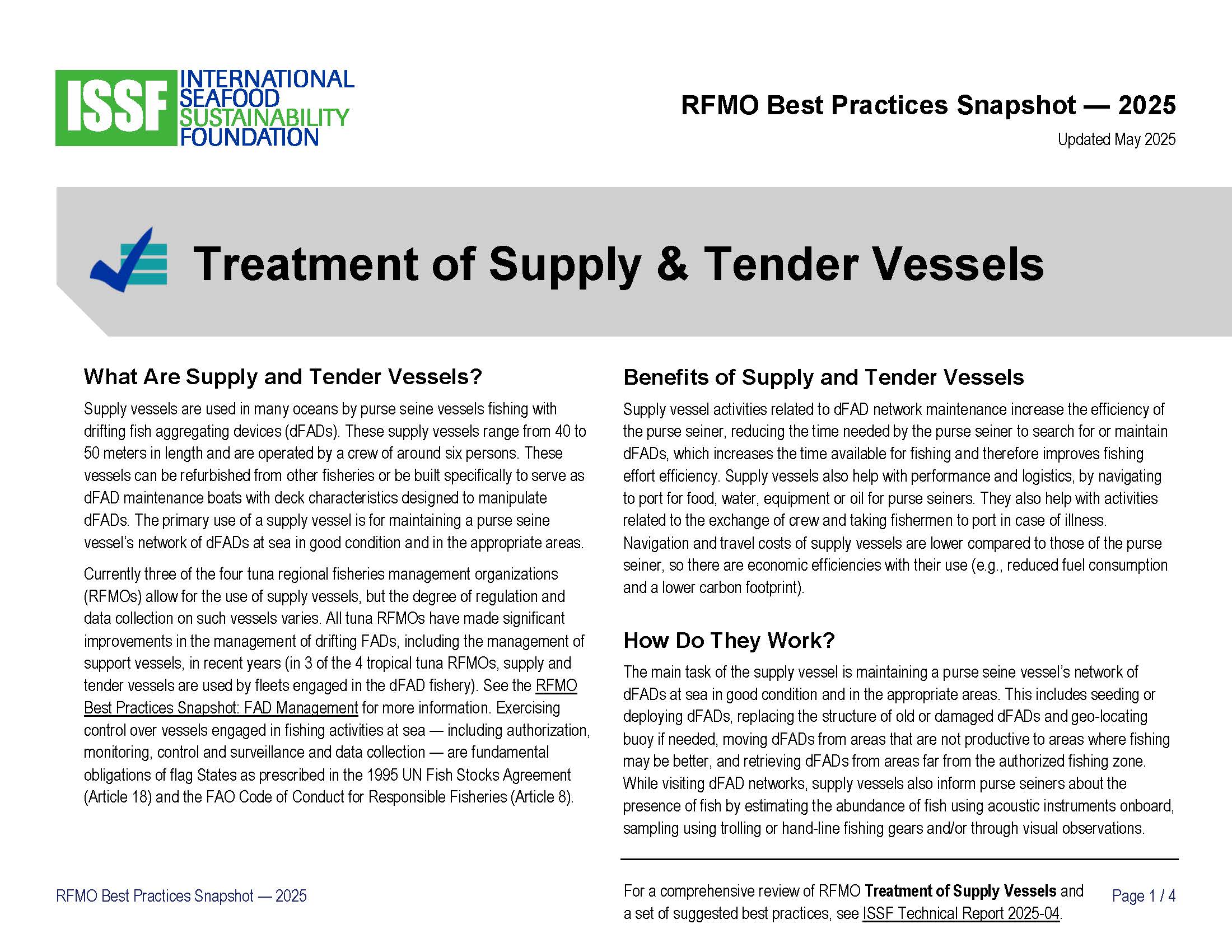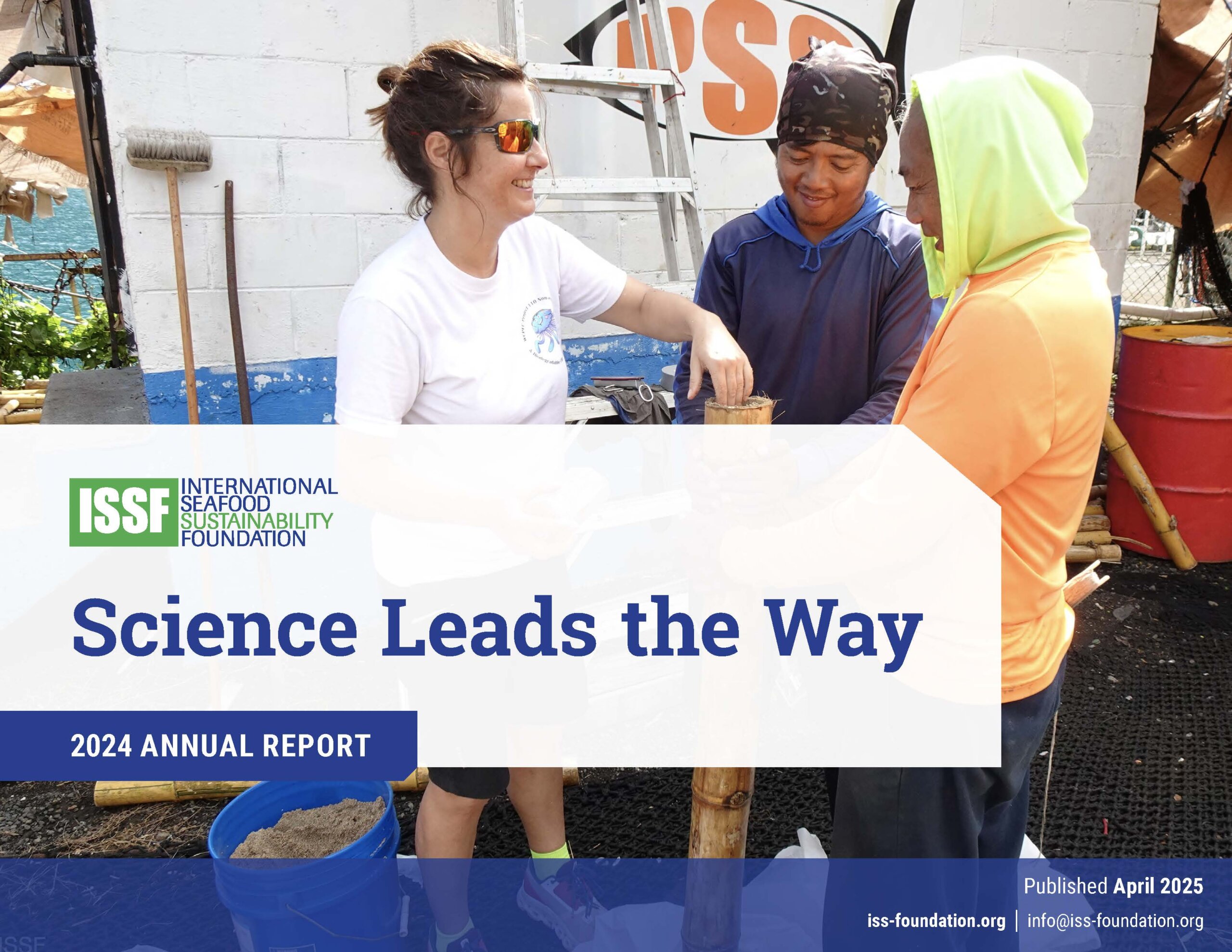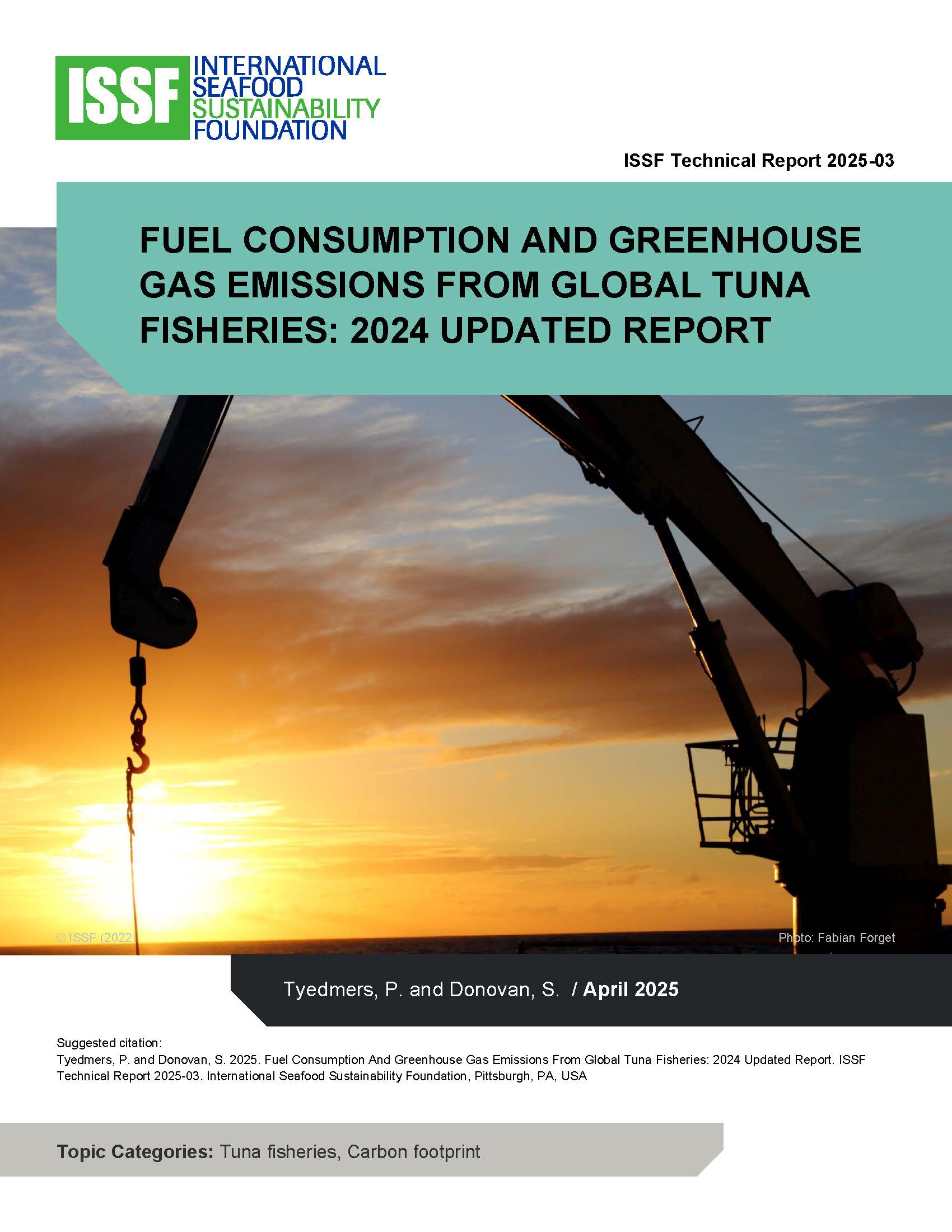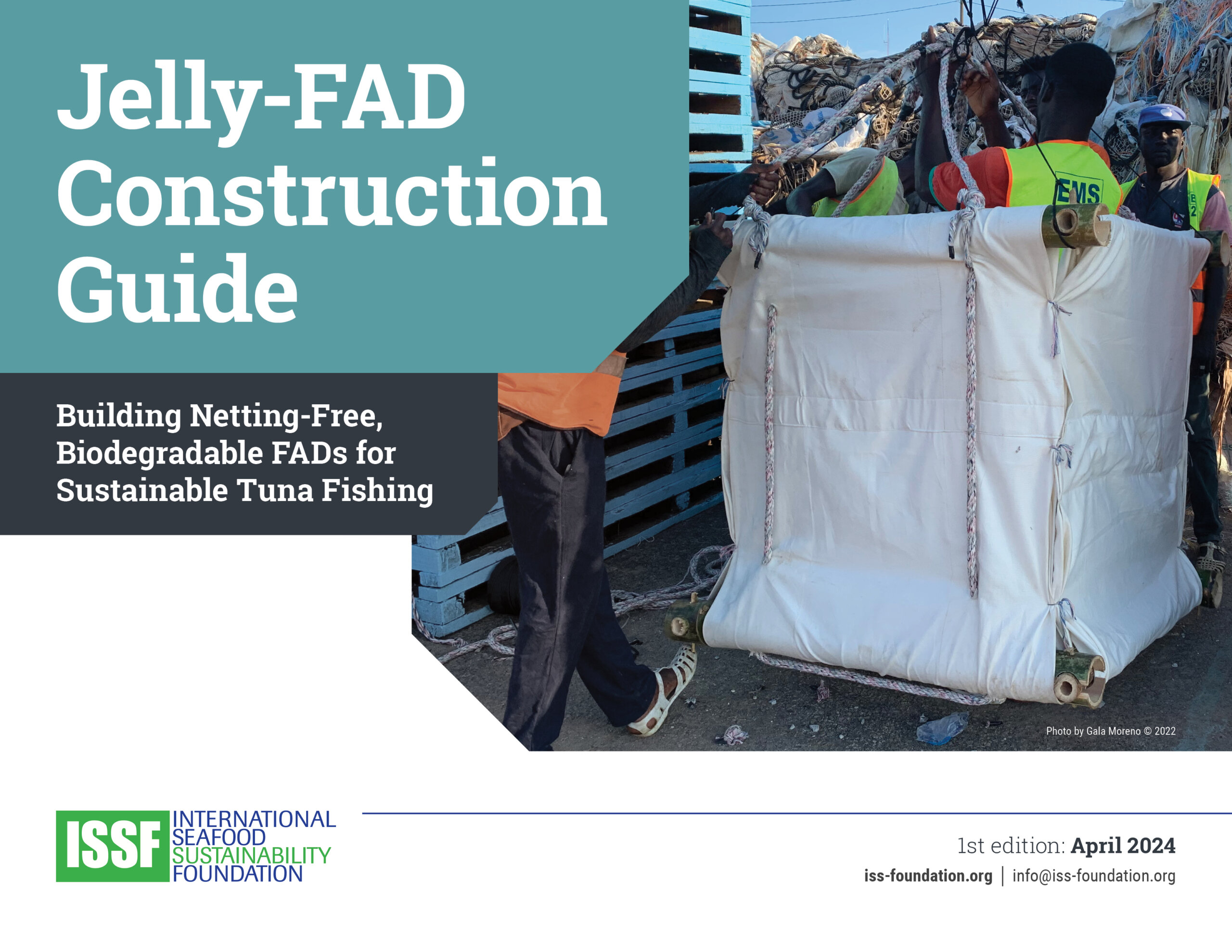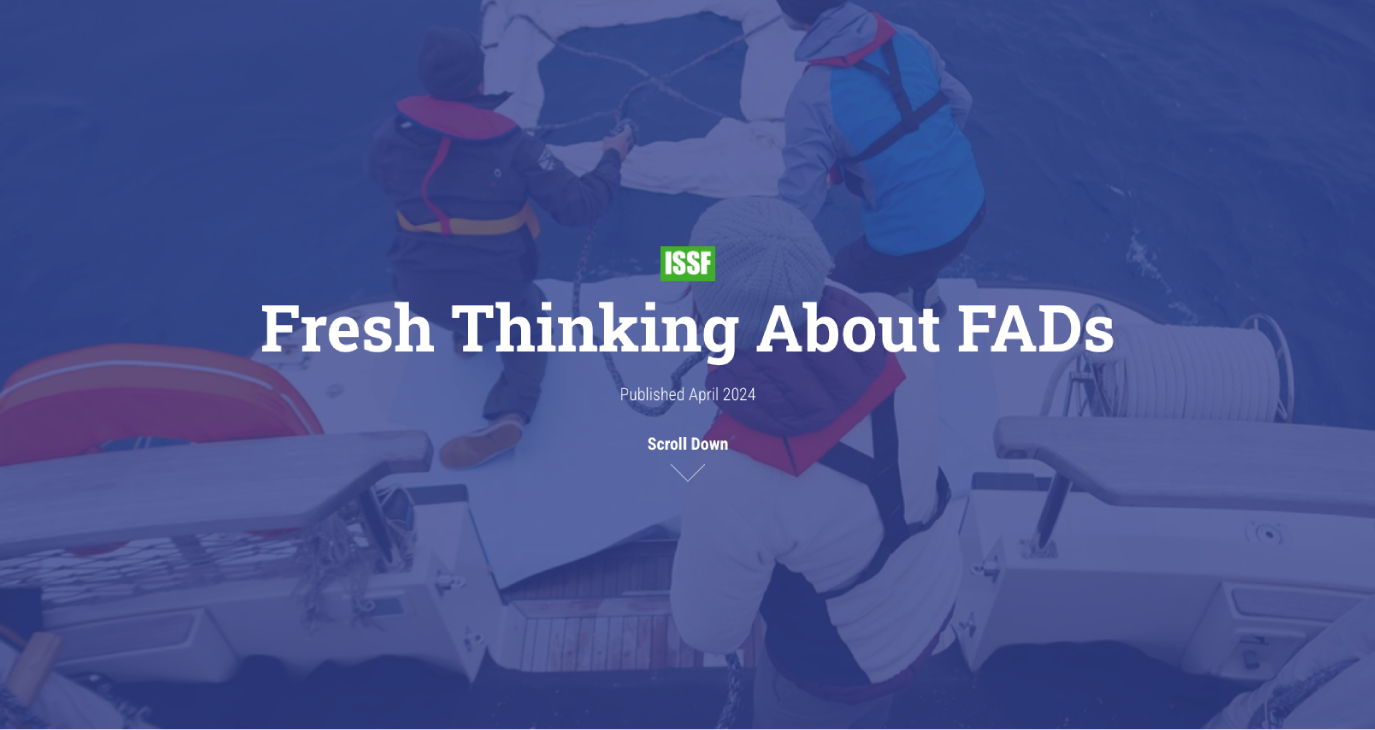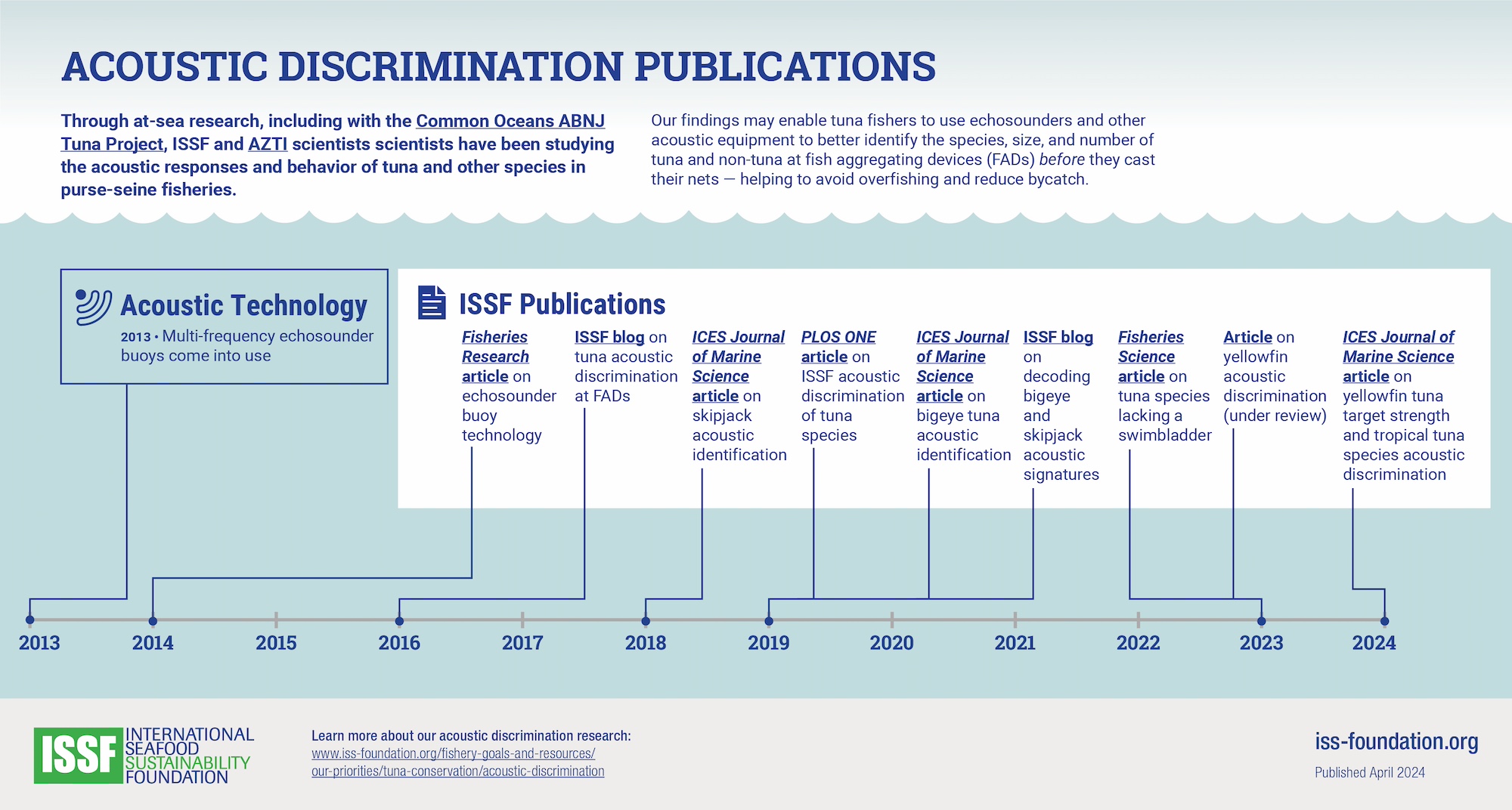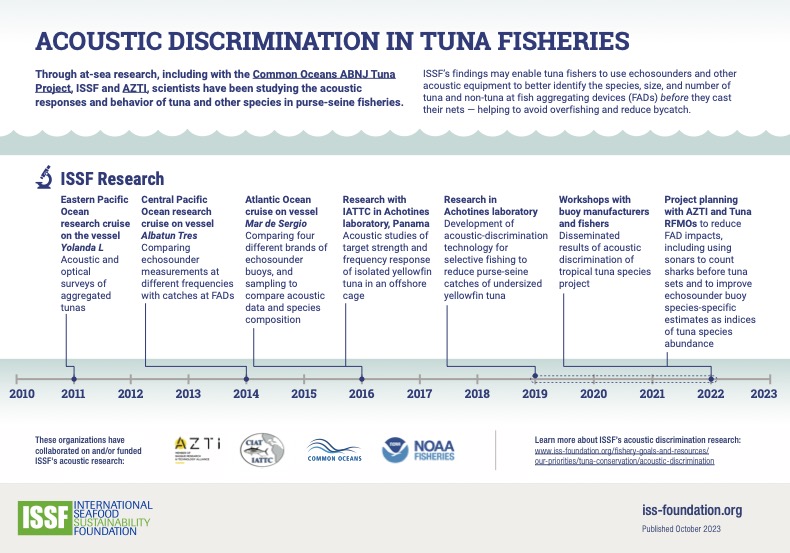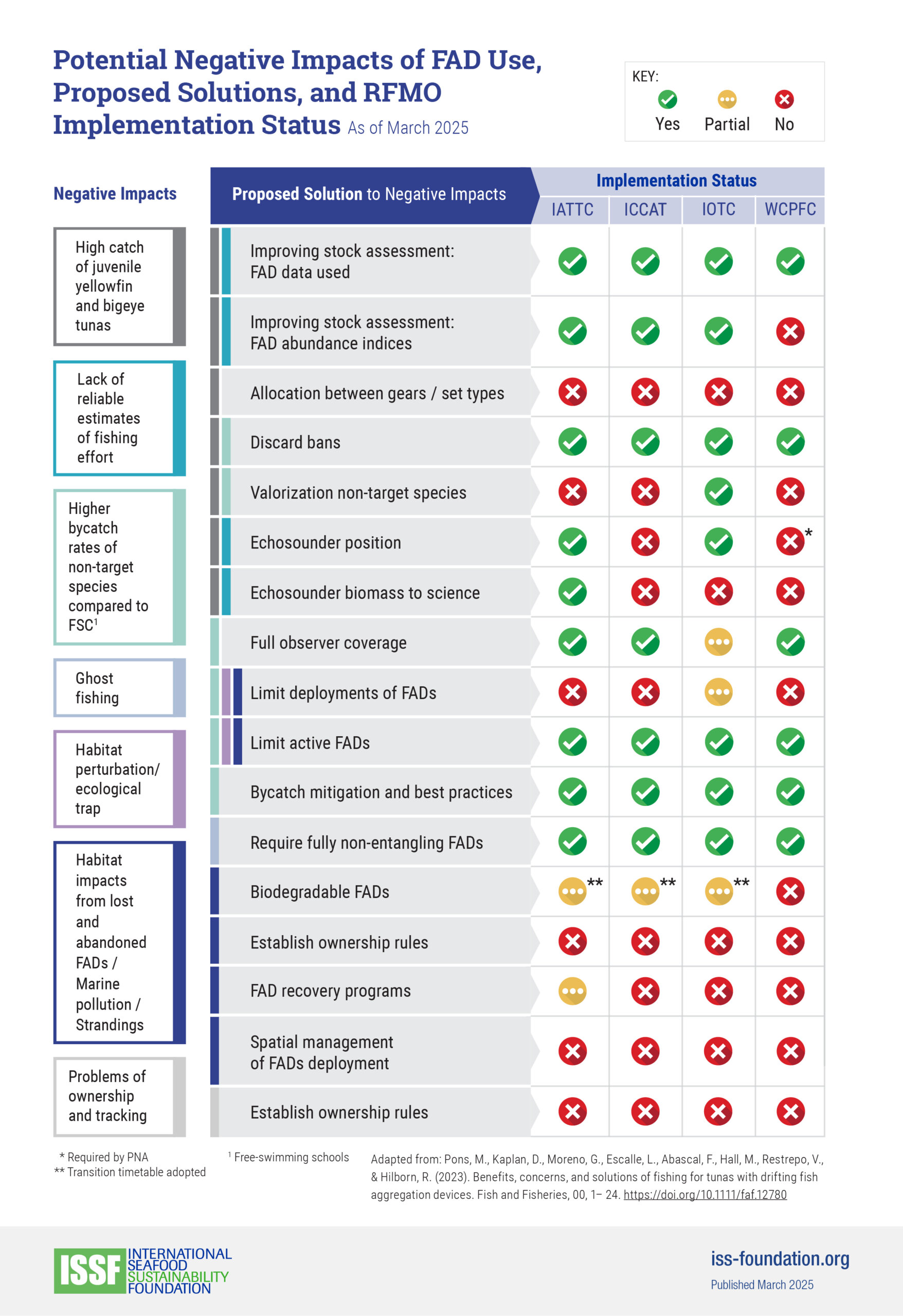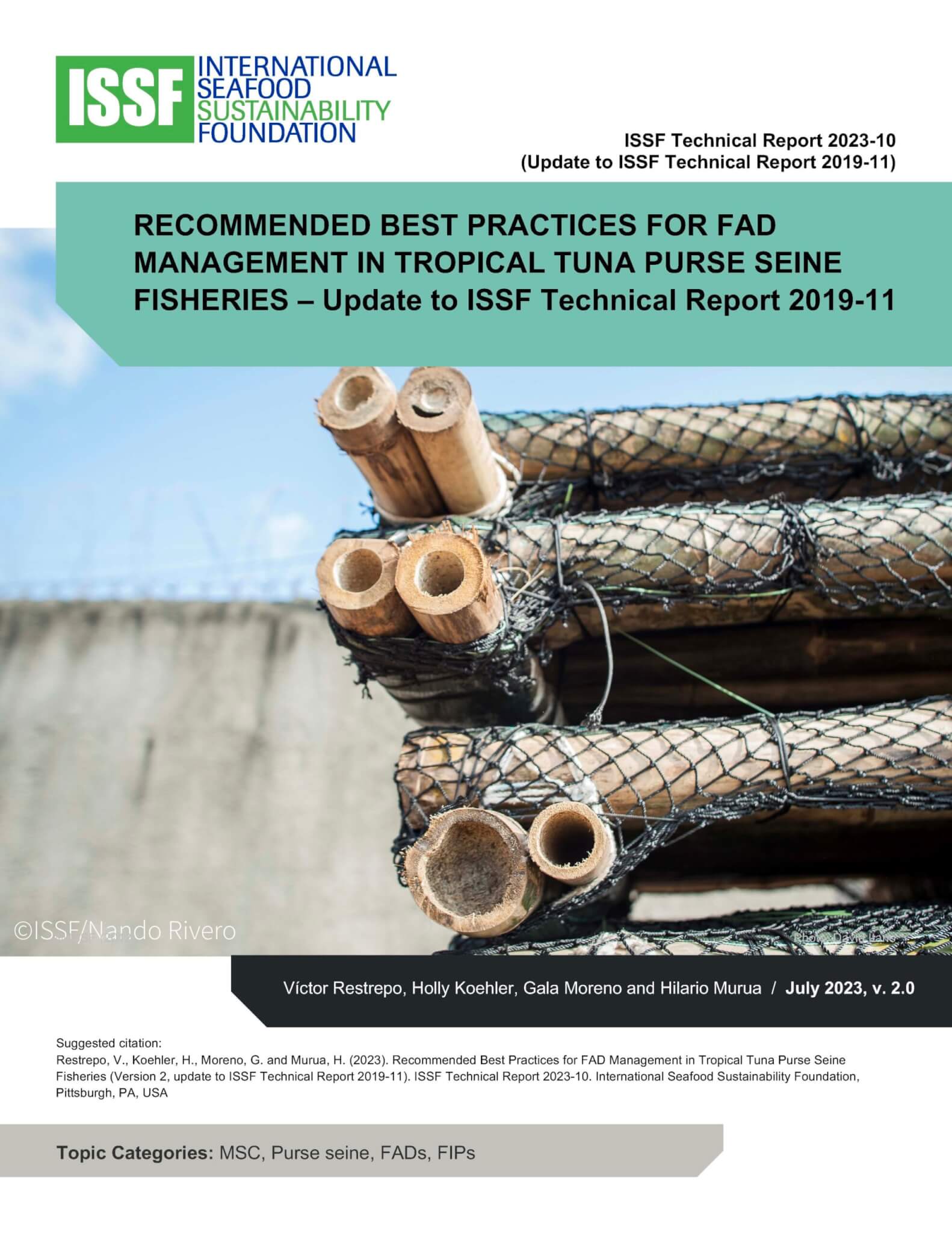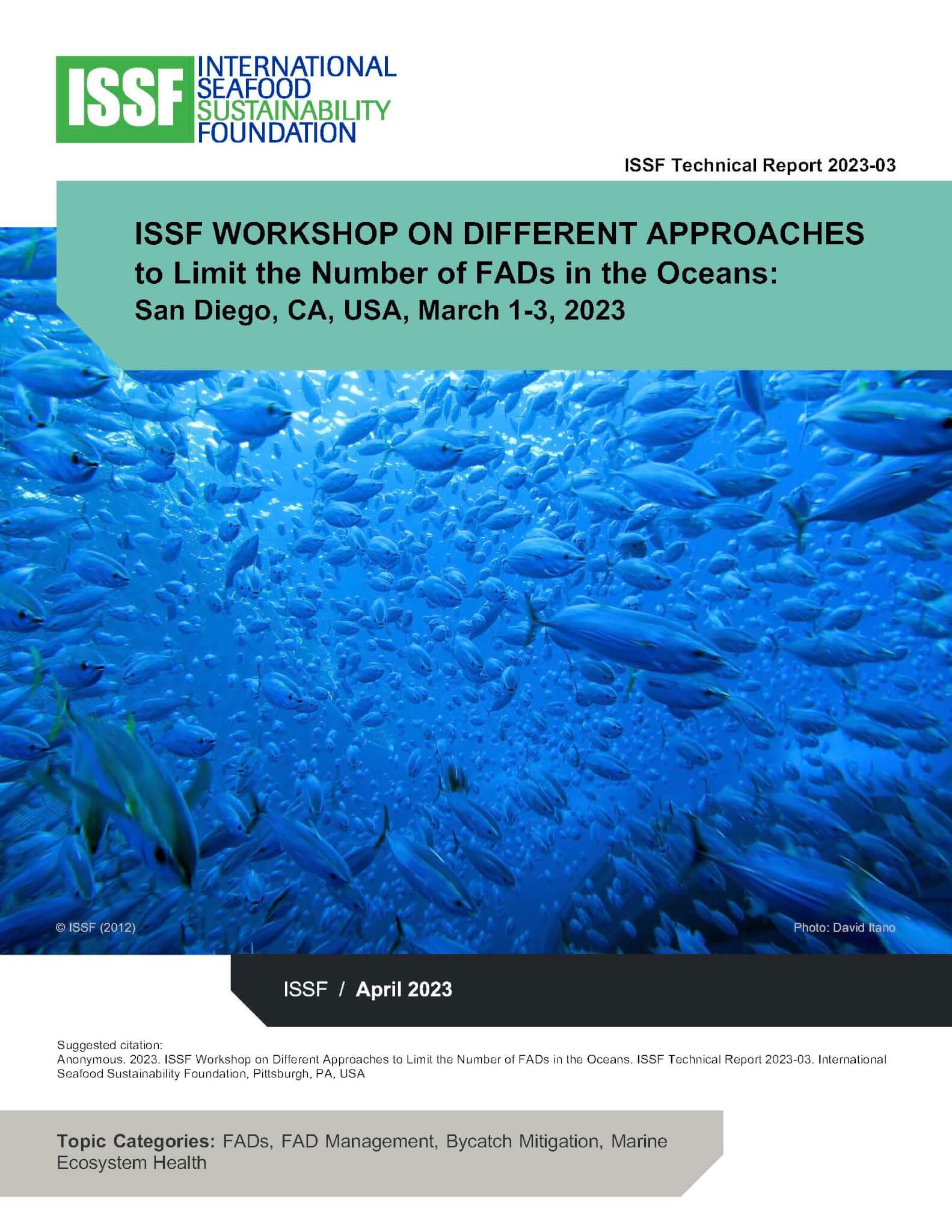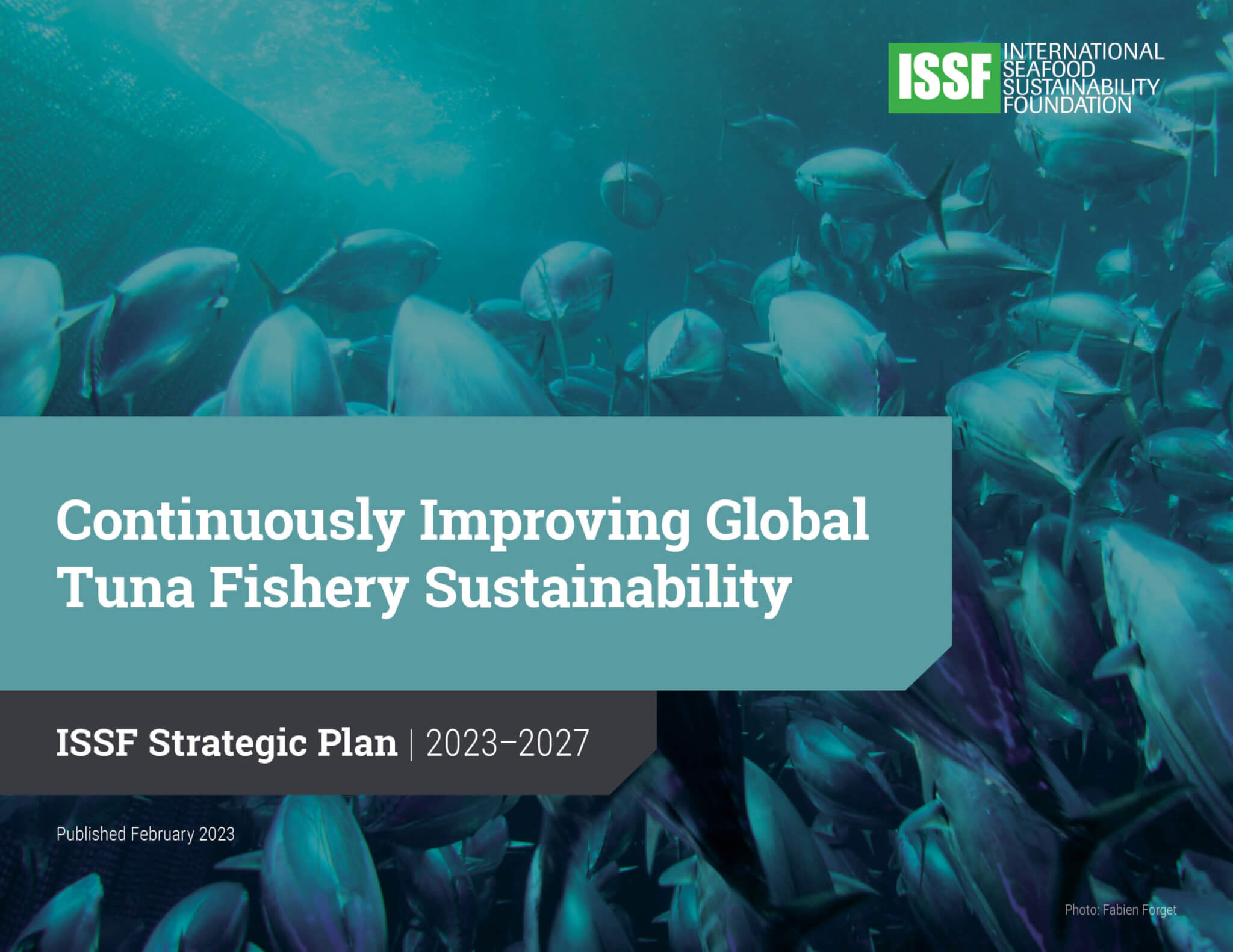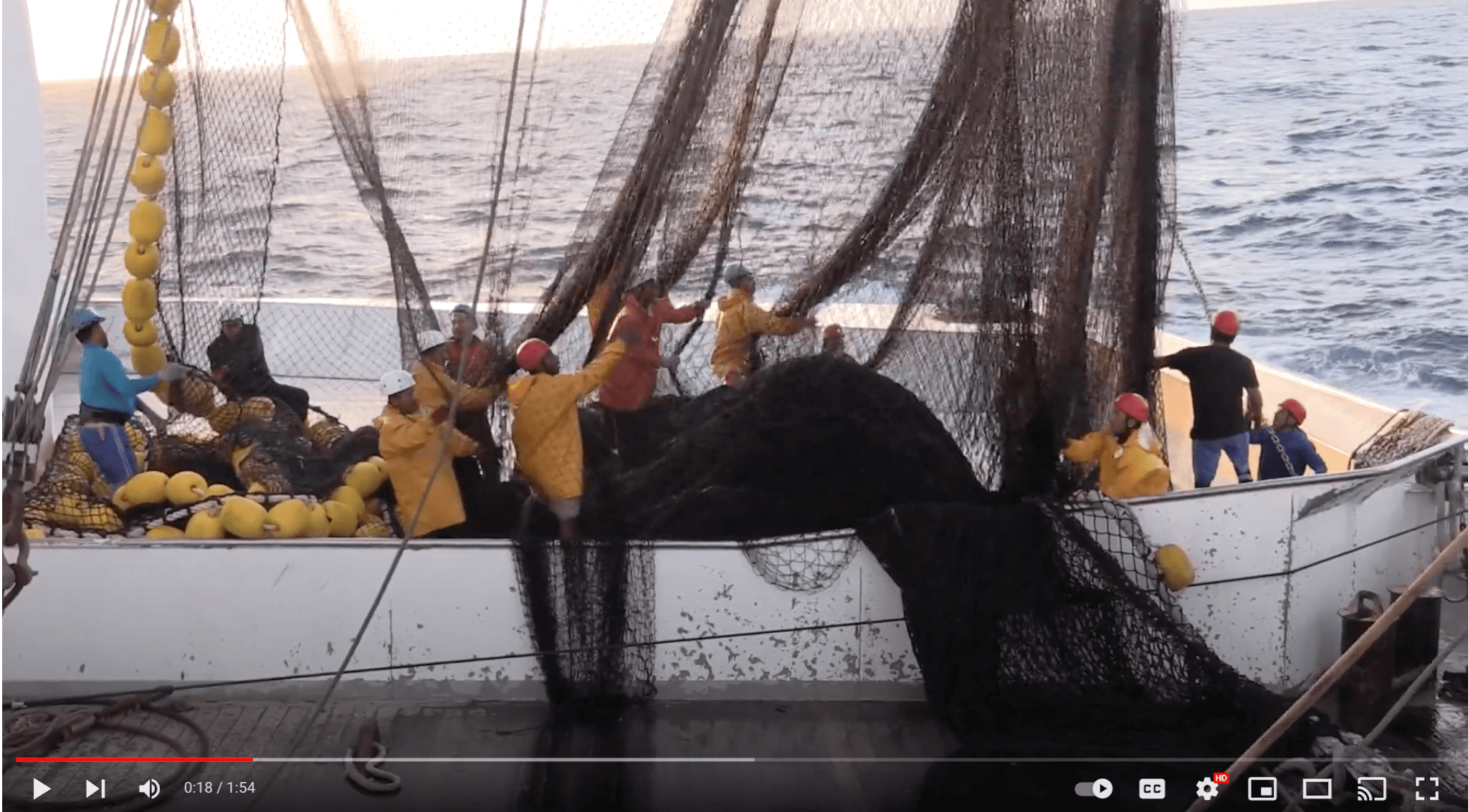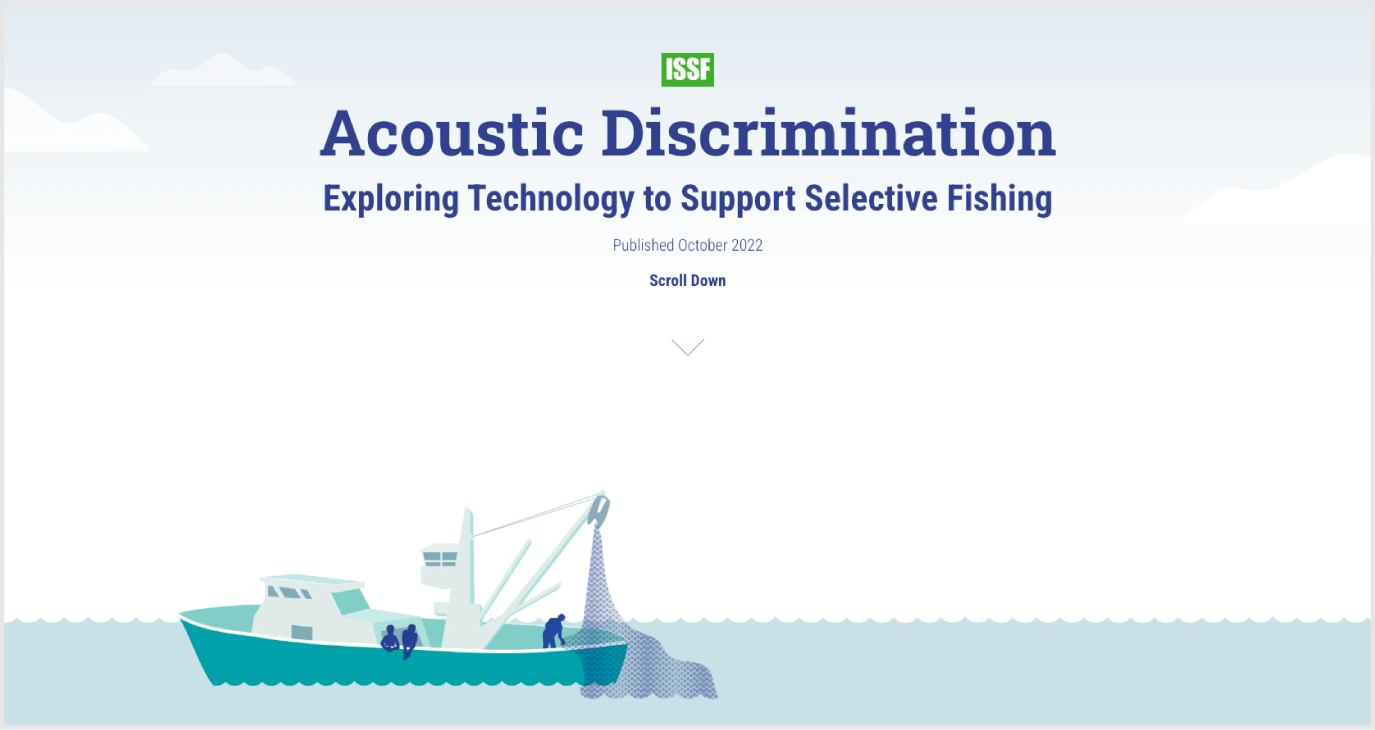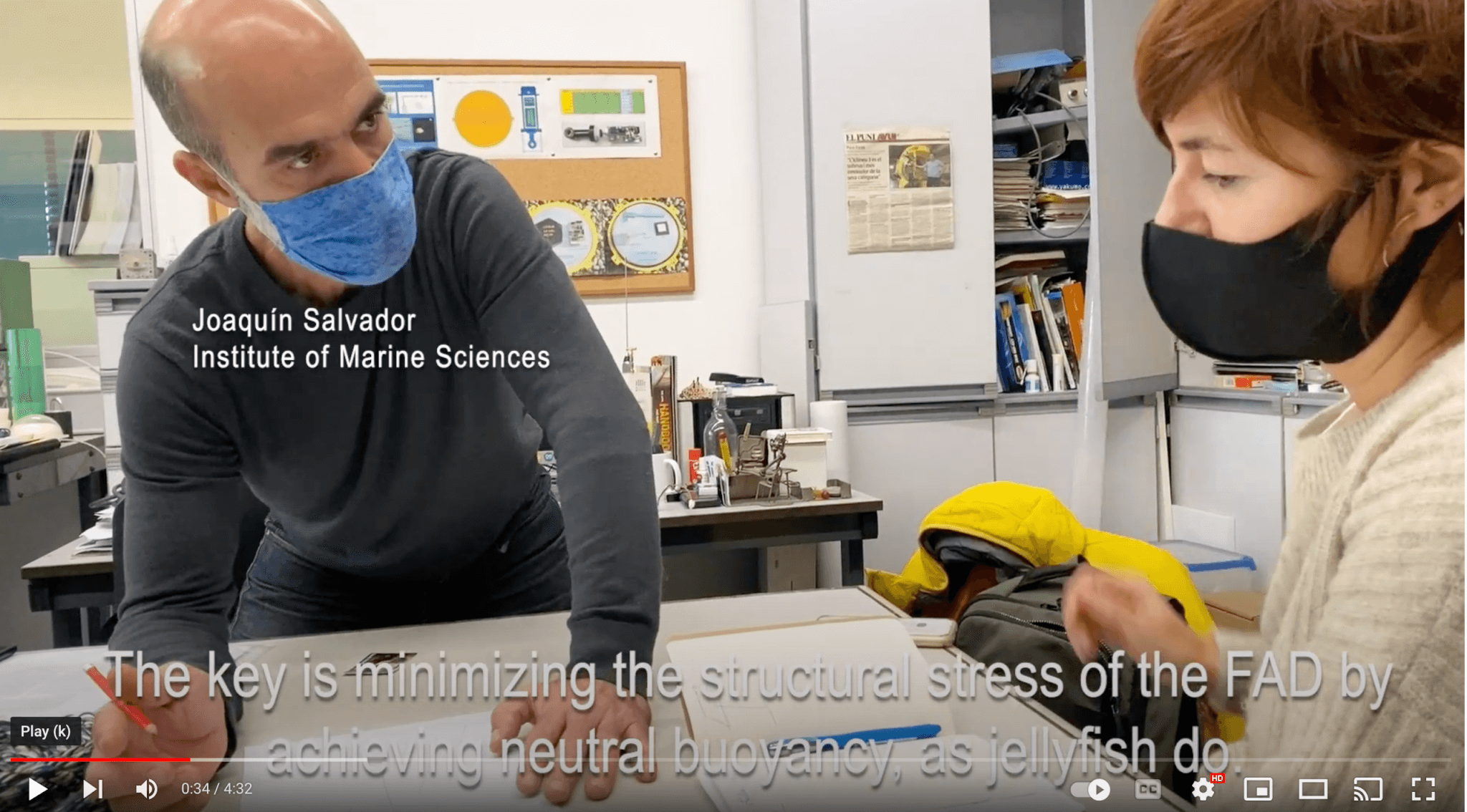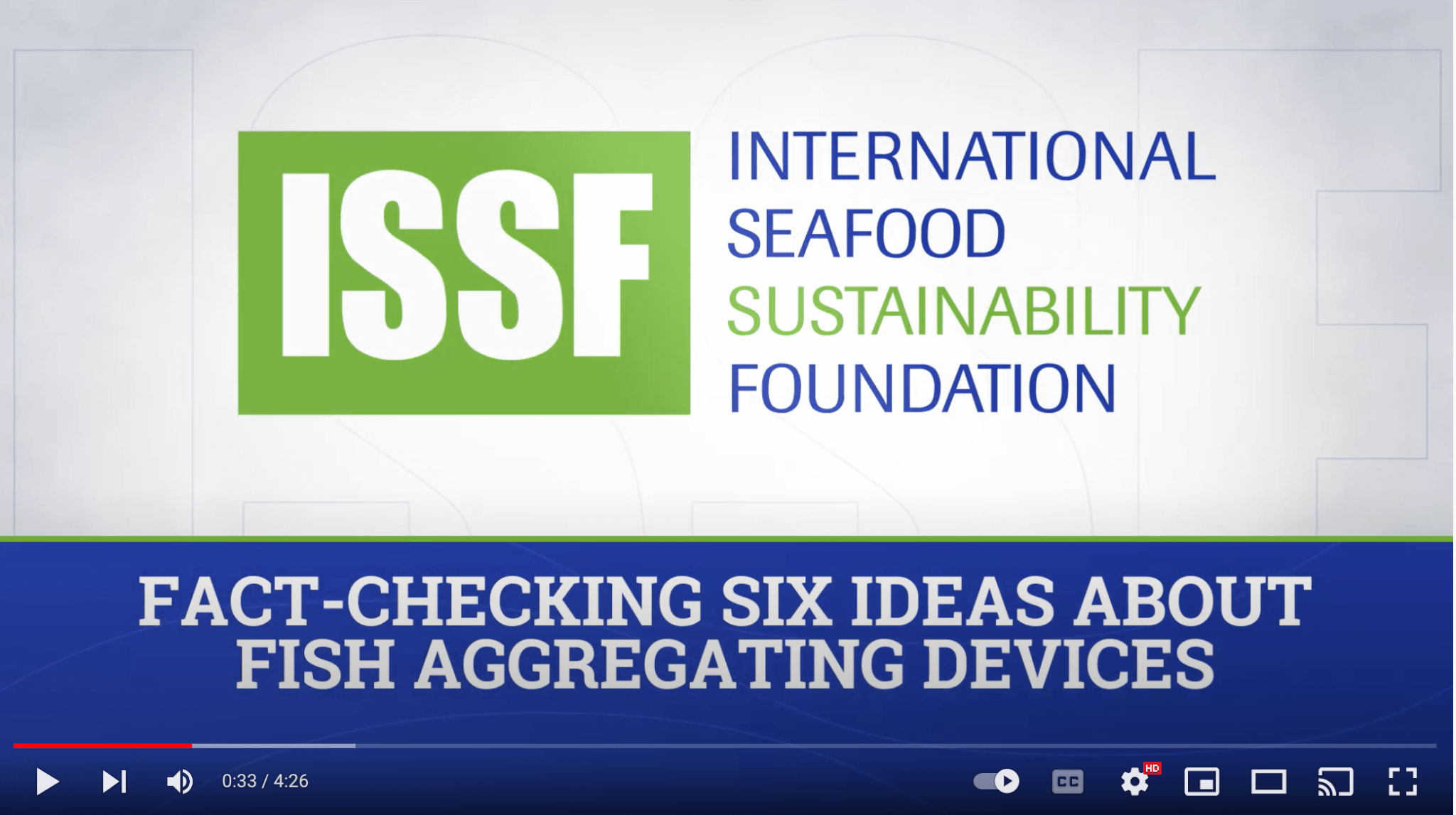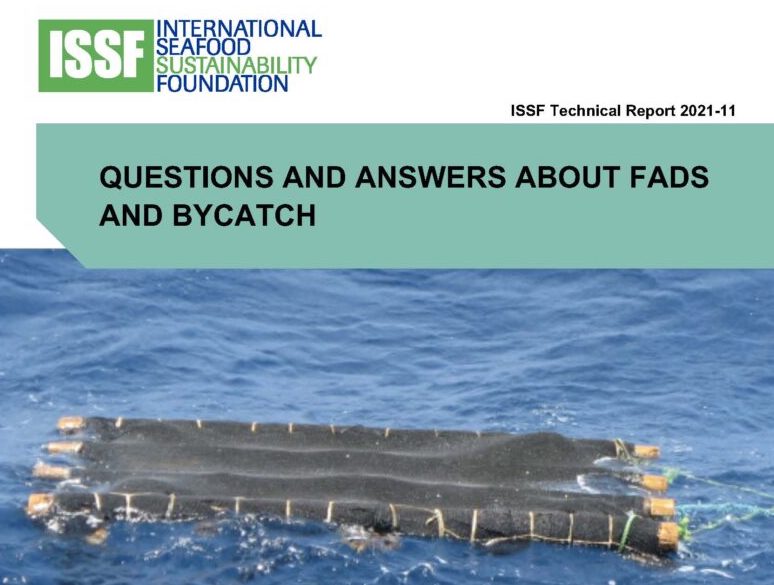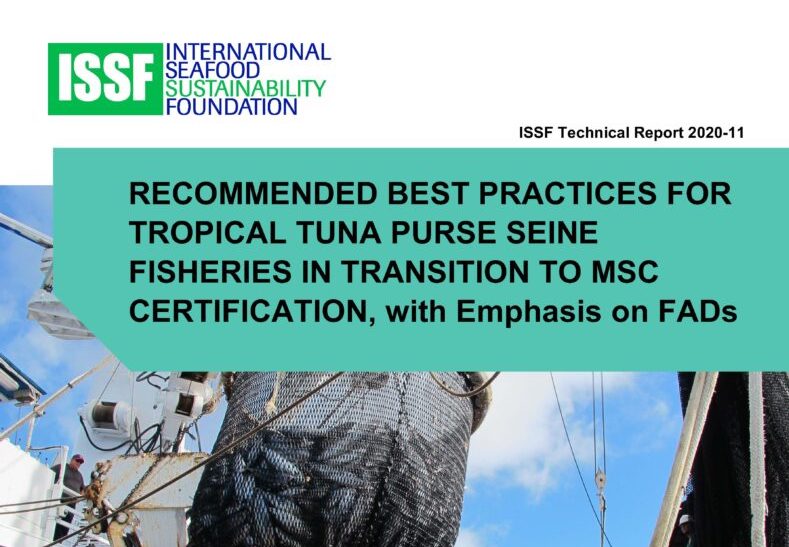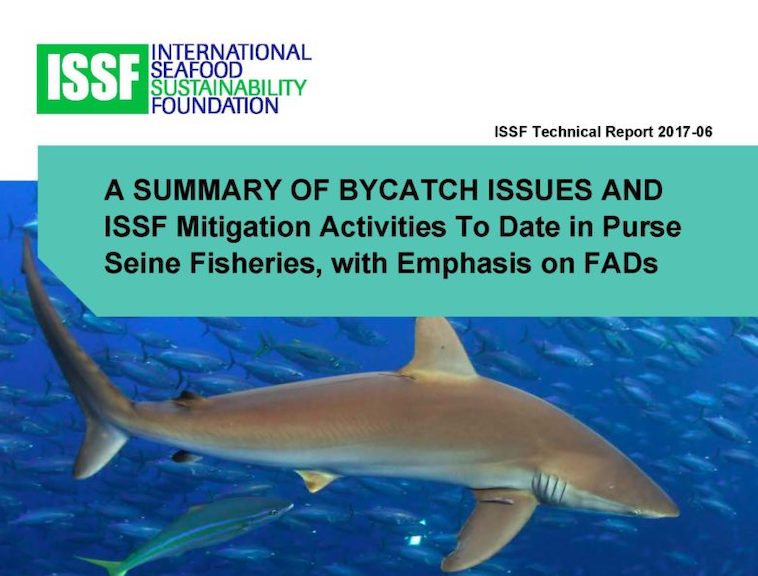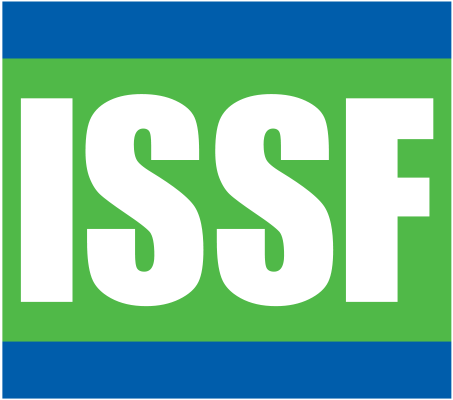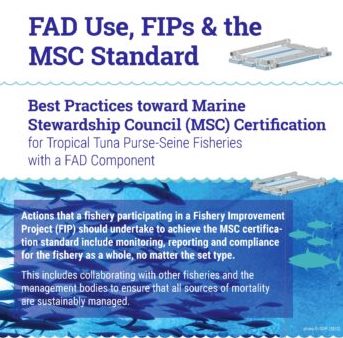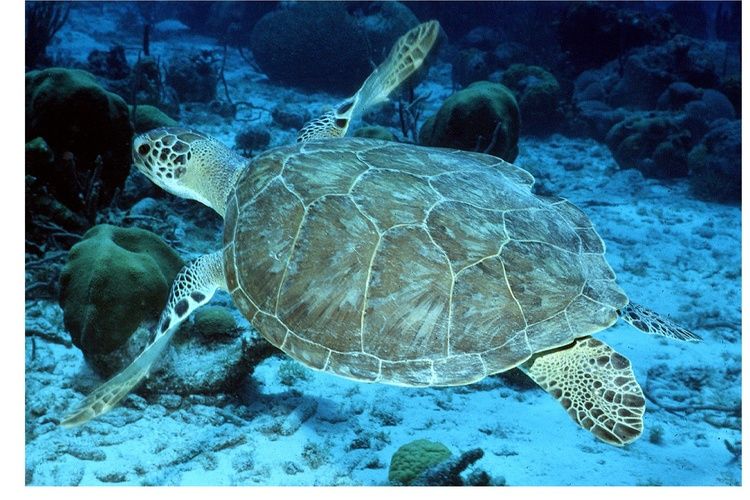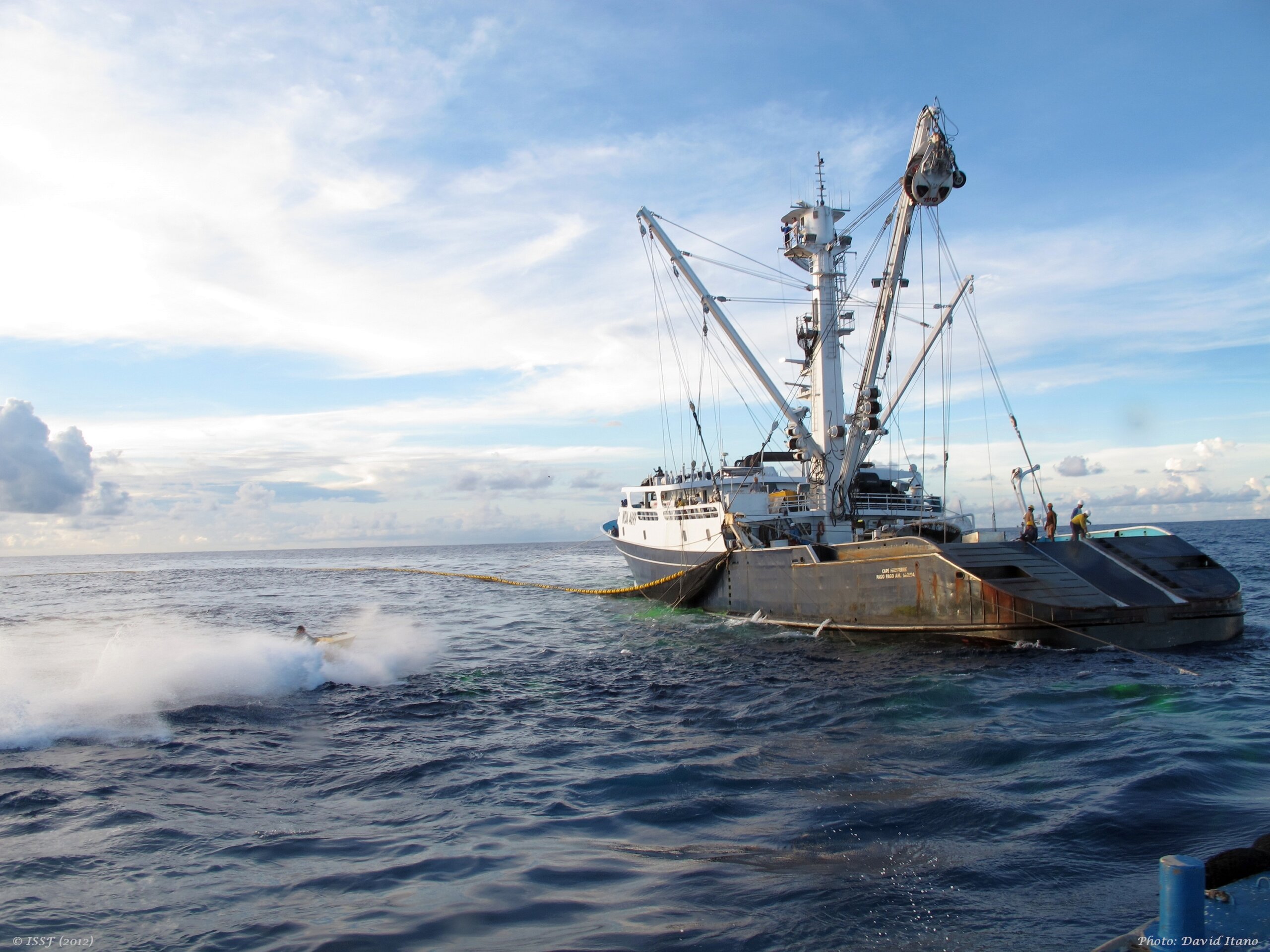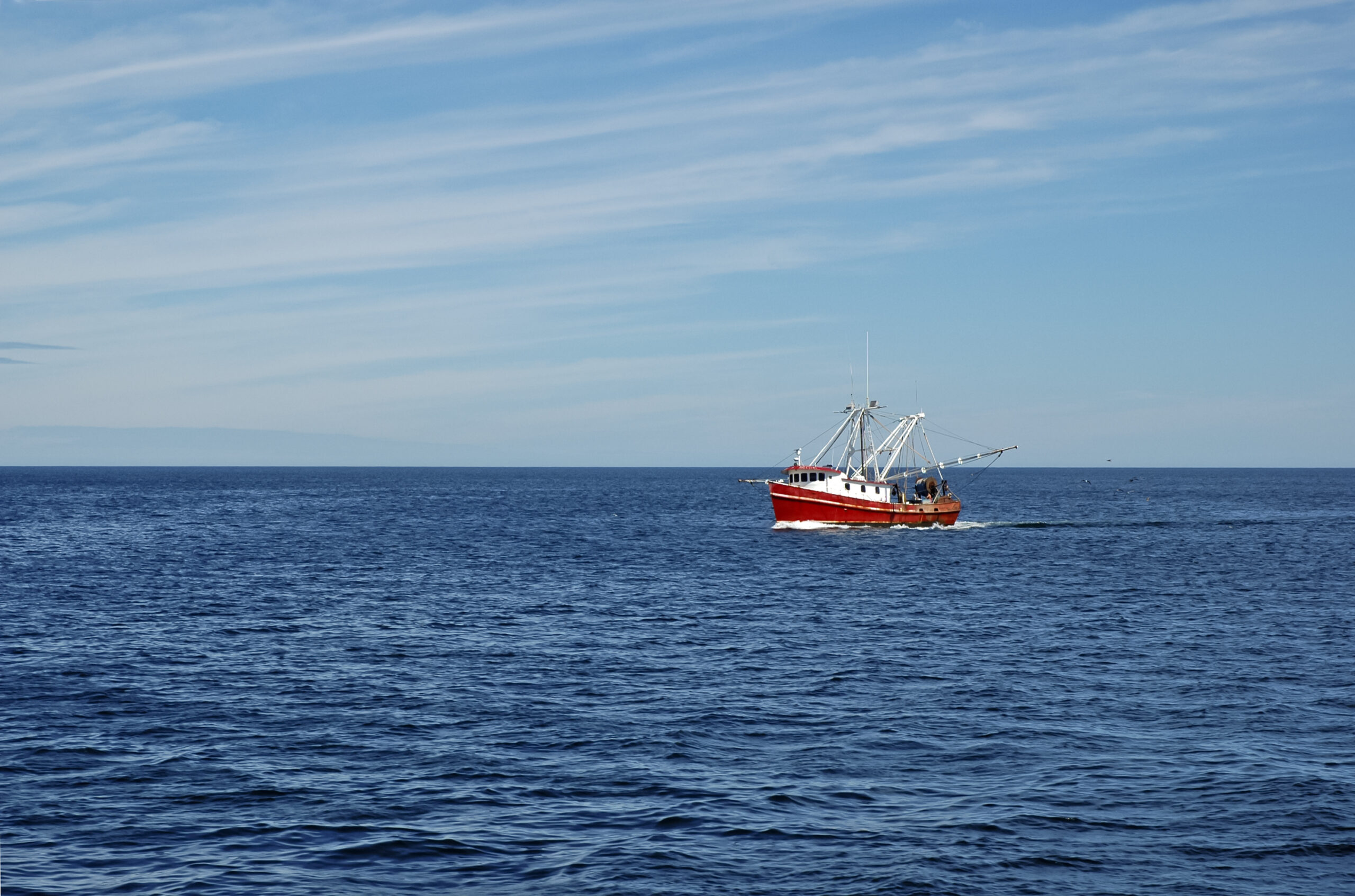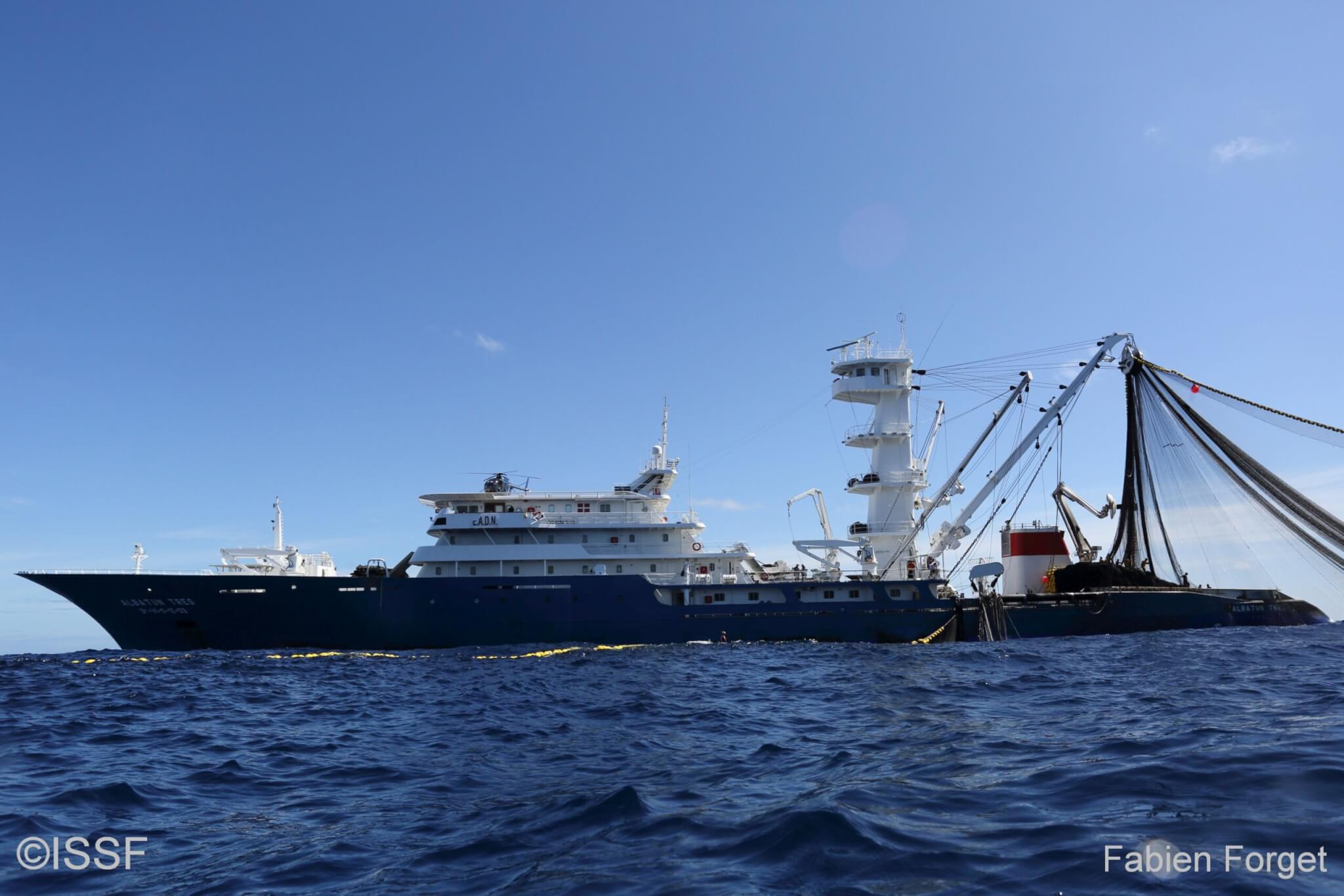
FAD Management
Since ISSF’s founding, Fish Aggregating Devices (FADs) have been one of our major research topics. FADs are effective in attracting and catching tuna — and widely used by fishers.
But FADs can stress tuna stocks and ocean ecosystems if not properly managed, increasing the risks of overfishing, overcapacity, and bycatch of non-target species that swim near FADs.
ISSF believes that FAD fishing can be made more sustainable if FADs are built to be non-entangling as well as biodegradable. FADs also must be well managed by fleets and well monitored by Regional Fisheries Management Organizations (RFMOs) and other oversight agencies.
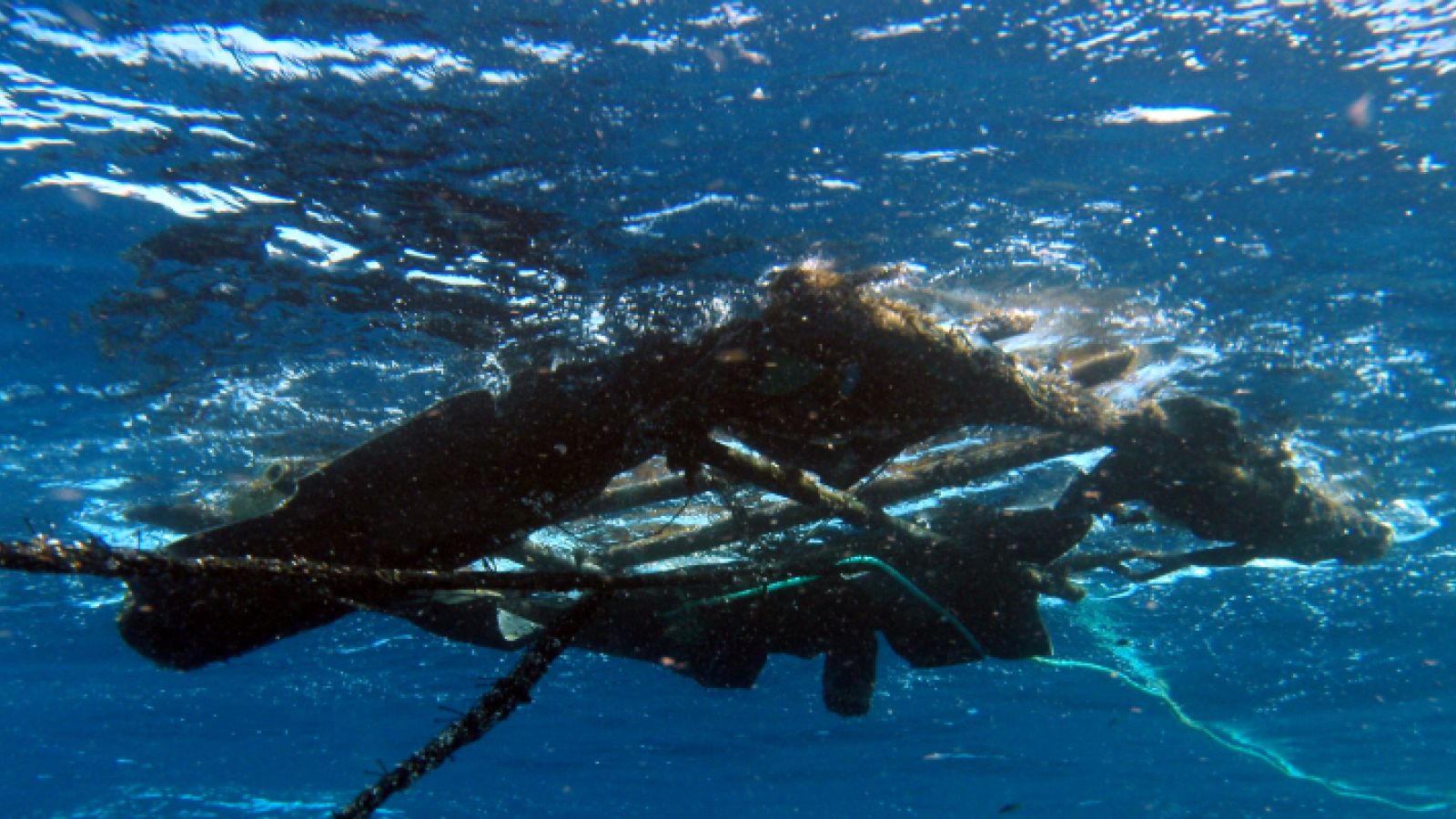
FAD Types
Tuna fishers around the world use different designs and materials to build FADs. Some FAD types pose a higher risk to non-target marine species and ocean ecosystems.
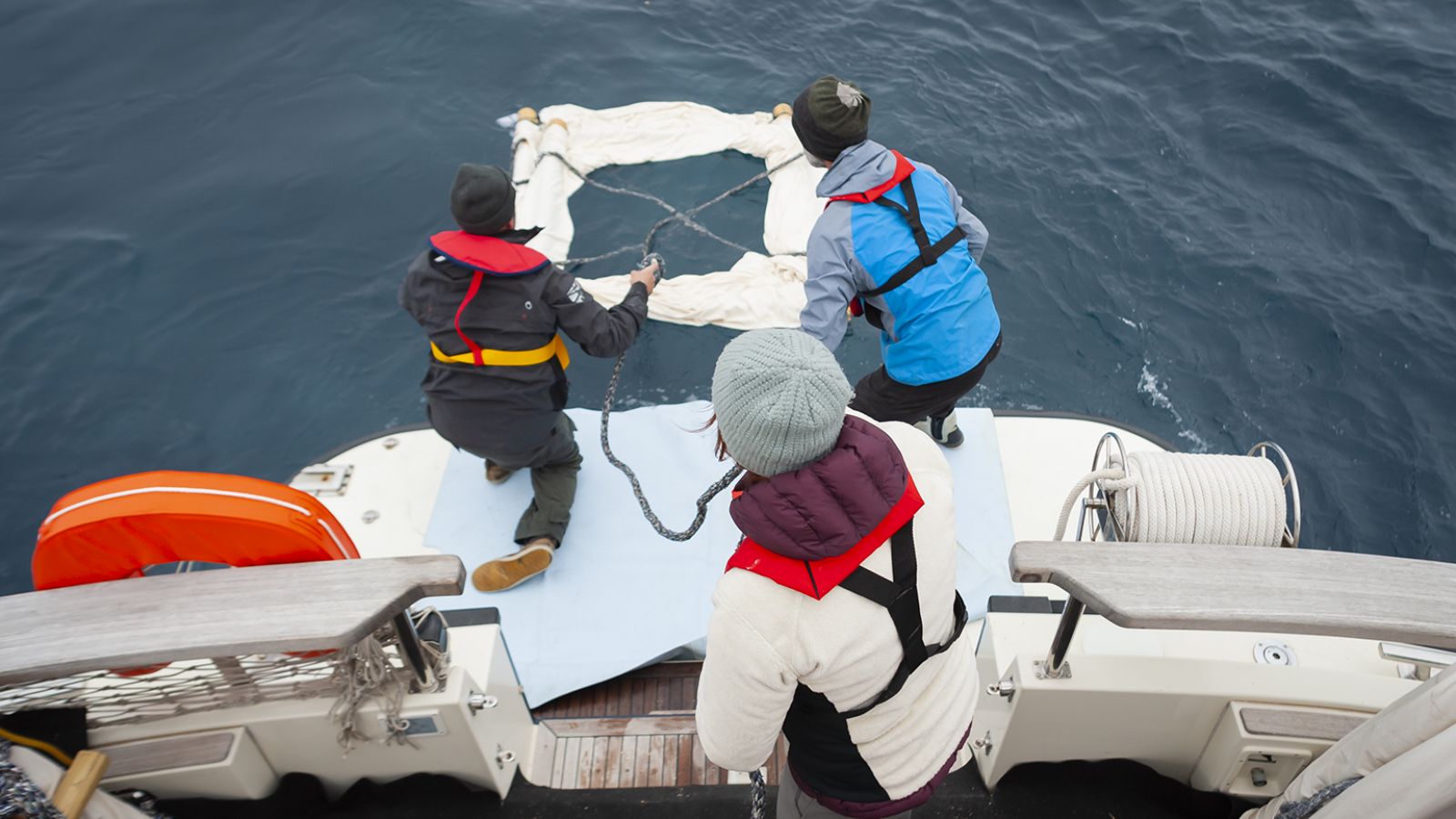
Biodegradable FADs
To minimize bycatch and marine pollution from FADs, ISSF researches non-entangling designs and natural materials that are more sustainable and also meet fishers’ needs for effective, durable gear.
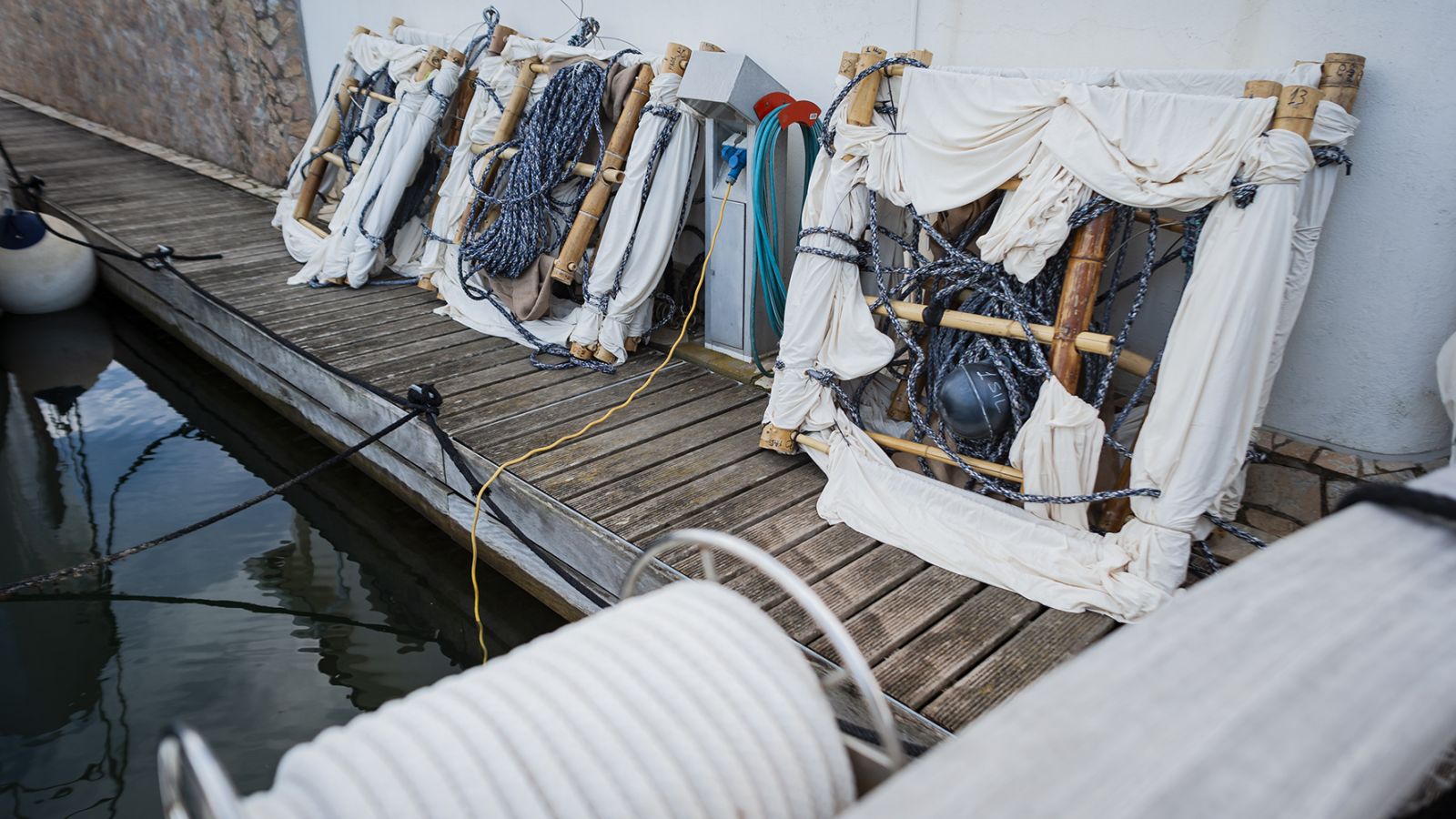
Jelly-FADs
Developed by ISSF with physical oceanographers and tuna fishers, the jelly-FAD — built with natural materials like bamboo and cotton — is a new model for non-entangling, biodegradable FADs.
OUR CONTRIBUTIONS
Research Data & Best Practices
Our science and advocacy experts have produced more than 100 publications on FADs.
ISSF scientific reports have examined FADs in context of designs and materials, bycatch, fishing capacity, and MSC fishery certification, for example. Some of these reports document our international workshops with scientific colleagues, tuna fishers, NGO partners, and other stakeholders.
Our best practices reports and RFMO best practices snapshots have assessed FAD practices and policies against sustainability criteria, considering topics as varied as FAD limits, tracking and recovery, data collection and reporting, and bycatch mitigation. Our scientists also publish peer-reviewed articles in leading journals.
ISSF also has established several conservation measures on FAD use for participating seafood companies .
Bycatch Mitigation Insights
Depending on the ocean location, bycatch species caught by purse seiners include primarily non-target tuna species and other finfish (wahoo, dolphinfish, rainbow runner, and billfish), which are largely utilized and are not of conservation concerns. But bycatch also includes vulnerable species of concern, such as sharks, rays, and sea turtles.
Through scientific workshops and at-sea research, including in partnership with commercial tuna fishers, ISSF has evaluated different approaches for reducing bycatch in FAD tuna fisheries — encompassing everything from setting times and fishing equipment to FAD-building techniques and acoustic species discrimination technology.
To encourage sustainable fishing practices and policies, we develop resources for both fishers and RFMOs — sharing what we have learned about effective bycatch mitigation, including handling-and-release techniques for incidentally caught marine species.
Fisher Workshops & Guides
We have hosted collaborative, problem-solving workshops with both purse-seine and longline tuna fishers that use FADs, exploring ways to minimize harm to marine animals and ecosystems. Recent ISSF workshops have focused on brainstorming and testing FAD designs with lower environmental impacts as well as reducing FAD loss or abandonment at sea.
In addition to in-person and video workshops, we produce fisher and observer guidebooks and videos that address FADs. We also offer a fisher guide to building jelly-FADs.
FAD Management Advocacy to RFMOs
Based on documented best practices, ISSF tracks tuna RFMOs’ FAD management requirements for the fleets in their regions — and rates their performances.
We also petition RFMOs directly through position statements, ahead of their annual or special meetings, to adopt sustainable fishing policies and enforce them effectively. Our partners — NGOs, seafood companies, and others — also have co-signed ISSF advocacy letters to RFMOs.
ISSF also has sponsored side events at RFMO scientific committee meetings to highlight our research initiatives and findings.
RELATED RESOURCES
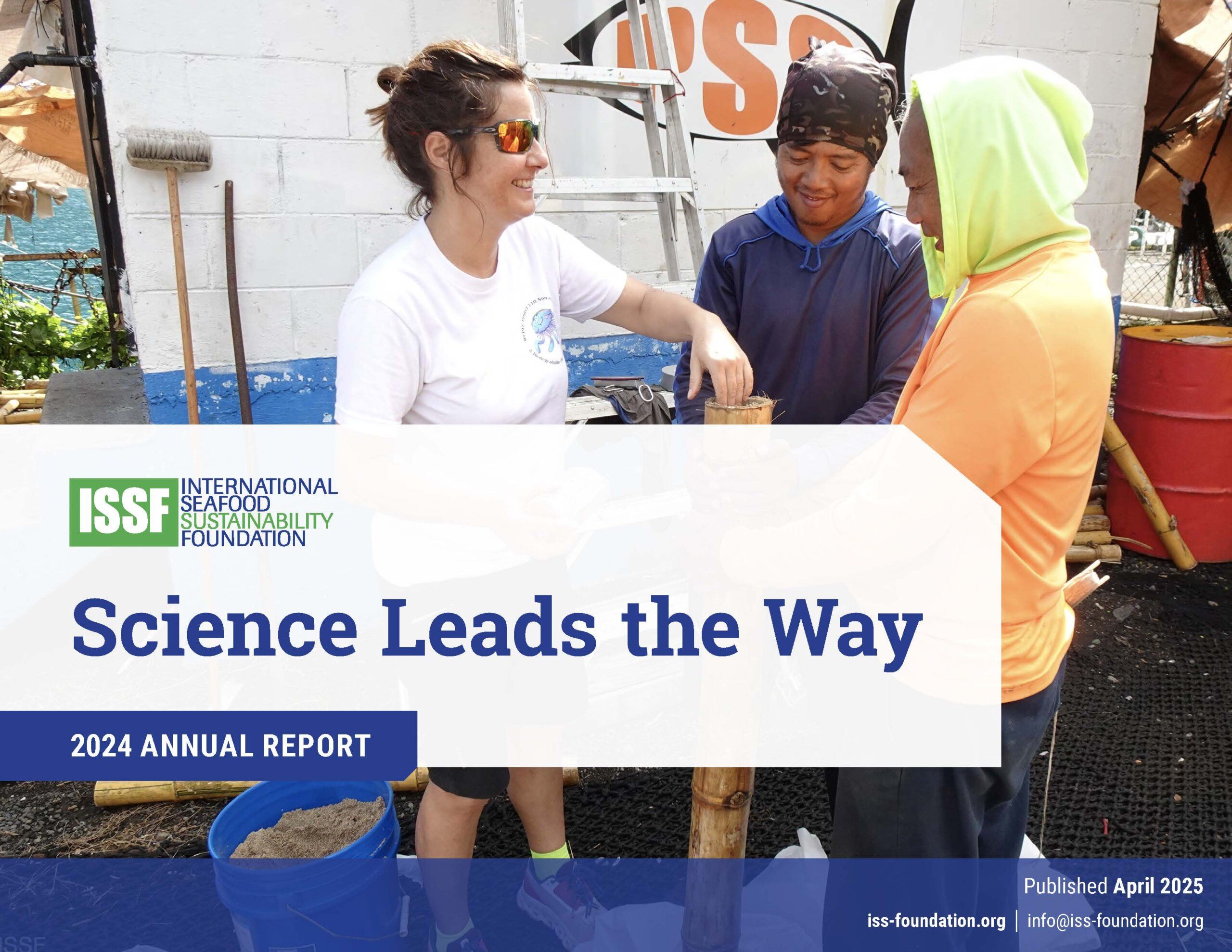
Annual Report
Science Leads the Way explores ISSF’s research, outreach, and other achievements in 2024.
Jelly-FAD Construction Guide
We created an illustrated guide that gives tuna fishers step-by-step instructions for building jelly-FADs — a new model for non-entangling, biodegradable FADs.
Peer-Reviewed Articles
See a list of peer-reviewed articles co-authored by our staff, Scientific Advisory Committee members, or other scientists whose projects were partially or fully funded by ISSF.
